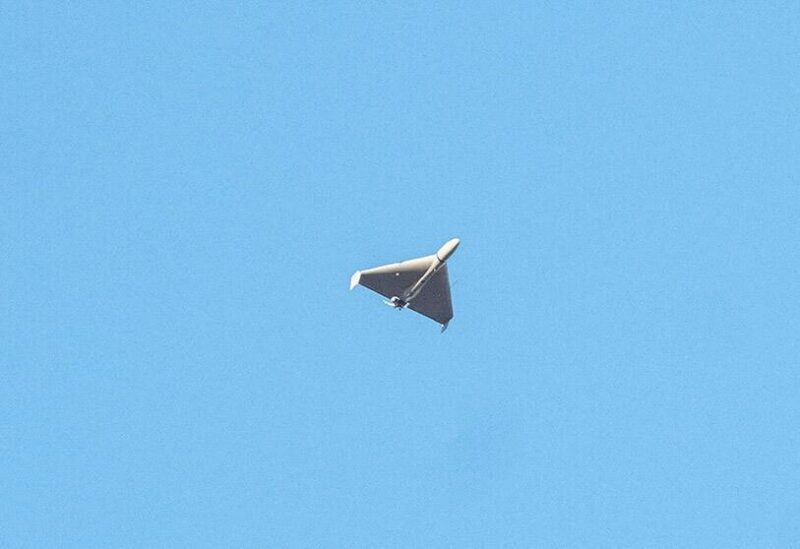The Kingdom of Morocco has been calling attention to the threat posed by the sales of Iranian drones to Algeria for use by the Polisario guerrilla fighters.
At the end of 2022, Moroccan Senior Officials highlighted Iran and Algeria’s new alliance along with statements made by Iranian officials about the sale of drones to Algeria as part of a significant arms deal. Senior officials from the Kingdom have also highlighted statements made by Polisario Front about the receipt of drones and other weapons from Algeria, along with training and the development of infrastructure to operate them.
Late last year, the separatist Polisario Front threatened to use military drones against Morocco’s Royal Armed Forces stationed along the Western Sahara defence wall. The announcement came as the Polisario’s leader Brahim Ghali was preparing to launch a military movement from Tindouf for the front’s “war of attrition” against Morocco.
Omar Mansour, the Polisario’s envoy to Mauritania’s President revealed the news at a press conference in Nouakchott at the time. “The Sahrawi army will soon use armed drones in the war of attrition in Western Sahara,” Mansour threatened.
Iranian drones on Morocco’s borders pose a serious concern for the country, as unmanned aerial vehicles can be used for surveillance, reconnaissance, and even military operations. The drones are capable of surveying vast areas of Moroccan territory, allowing the Iranian government to gain insight into the Kingdom’s activity and movements. Furthermore, the drones could be used to provide intelligence on the Moroccan military on the Polisario’s positions, making them vulnerable to airstrikes and other forms of aggression. As the Iranian drones become increasingly prevalent in the region, Morocco is likely to face a heightened risk of attack, making this an urgent matter that must be addressed.
Accordingly, the Moroccan Armed Forces enforced a land and air exclusion zone east of the defensive wall and started operating a variety of unmanned aerial vehicles (UAVs), including Turkish-designed Bayraktar TB2 drones. Less than twenty-four hours after the Polisario threatened to use unmanned aircraft against Morocco, Morocco’s Foreign Affairs Minister Nasser Bourita warned against the acquisition of armed drones by terrorist and separatist groups.
“Iran, after undermining the stability of Syria, Yemen, Iraq and Lebanon, is in the process of stabilising our region,” declared Omar Hilal, Morocco’s ambassador to the United Nations.
With the West’s eye firmly on the role Iranian drones are playing in Ukraine, concerns are rising in Africa that Iran is playing a major destabilizing role in the region through the support of terrorist proxies. Having supported Hezbollah in Lebanon, Houthis in Yemen, and Fatimiyoun in Afghanistan it’s well known that Iran is playing a significant role in West Africa. It is typical of Iran’s approach to foreign intervention to identify proxy wars and then offer support to the non-state actors requiring weapons.
Iran is also using both its soft power through education and marriage to build up its presence in North Africa. At the same time, it is providing weapons, training, and other types of support with the engagement of a range of other countries to militias in the region.
Iran is playing an active role in the Sahel across North Africa with various groups while Morocco, one of the U.S.’s most long-standing allies in the region raised concerns as early as 2006 that the region was becoming a breeding ground and exporter of a new generation of terrorists.
In Africa, there is rising concern that the support and materiel being provided to individuals by Iran and other malign actors in North Africa would result in increased attacks and instability. Attacks are taking place against local populations and Western forces in the region with French and U.S. special forces having already experienced casualties.
The provision of drones to Polisario by Iran and Algeria, and their likely spread to other groups is a major escalation in their offensive capabilities. Morocco, which has experienced devastating terrorist attacks in the past, because of its pro-Western role as a firewall against Islamic extremism, is once more on the front lines.
As is being seen in Ukraine, armed drones provide the ability to attack targets from a distance – not too long ago only an option for countries with air forces or ballistic missiles. Having weaponized drones on the border of Morocco controlled by the Algerian-backed Polisario Front is the equivalent of Russian missiles in Cuba.
In the same way that this had major geopolitical consequences, independent observers and Moroccan officials are raising concerns that this very real threat is being lost in the fog of Russia’s invasion of Ukraine, the focus on China spy balloons, and the Turkey-Syria earthquake.
Iran’s growing military-industrial complex is producing and shipping drones, and weapons including missiles and cluster bombs, to stoke conflicts and instability around the world. While the world focused on Ukraine, its weapon sales and ability to work around sanctions to generate revenue at home should be a major cause for concern for the West. The Algeria and Iran axis as it relates to Morocco and Polisario needs far more attention from the U.S. and others who tend to look at this through the lens of a dispute between neighbours, rather than as is increasingly the case Polisario as a proxy for Iran and Algeria, building up capabilities to attack a U.S. ally.
Similarly, Russia’s invasion of Ukraine is part of a broader strategy to reform the Soviet Bloc, Iran’s engagement with Algeria needs to be seen as part of its objective of an arc of influence stretching from the Middle East through North Africa and into the West Africa. Morocco is a key buffer between these regions and of critical importance.
In this broader context, there’s a real danger that, just as in the past, as Morocco sounds the alarm about drones on its borders that the warnings will not be heard, and the Iran-Algeria axis will grow stronger and more dangerous for the region.
